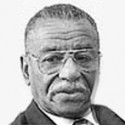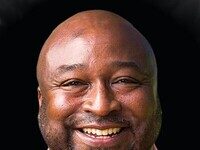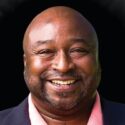 On Christmas night in 1956, the Rev. Fred Shuttlesworth, pastor of the Bethel Baptist Church in Birmingham, Alabama, went to bed early. Shortly after 9 p.m., 16 sticks of dynamite exploded on the other side of a brick wall from where he lay in bed. Shuttlesworth fell through the floor into the basement. Police found Shuttlesworth under a pile of rubble. One white officer told him, “Reverend, I’m sorry. I didn’t think they would go this far.” Shuttlesworth told the officer, “Go back and tell your Klan brethren that if God can keep me through this, the war is on. I’m here for the duration.”
On Christmas night in 1956, the Rev. Fred Shuttlesworth, pastor of the Bethel Baptist Church in Birmingham, Alabama, went to bed early. Shortly after 9 p.m., 16 sticks of dynamite exploded on the other side of a brick wall from where he lay in bed. Shuttlesworth fell through the floor into the basement. Police found Shuttlesworth under a pile of rubble. One white officer told him, “Reverend, I’m sorry. I didn’t think they would go this far.” Shuttlesworth told the officer, “Go back and tell your Klan brethren that if God can keep me through this, the war is on. I’m here for the duration.”
The Klan plotted Fred Shuttlesworth’s death on other occasions. “I believe I was almost at death’s door at least 20 times,” Shuttlesworth told JBHE several years ago. “But when the first bomb went off, it took all fear from my mind. I knew God was with me like he was with Daniel in the lion’s den. The black people of Birmingham knew that God had saved me to lead the fight. That bomb had my name on it but God erased it off.”
Fred Shuttlesworth died on October 5 in Birmingham, Alabama. He was 89 years old.
Fred Shuttlesworth was born in Montgomery County, Alabama, in 1922. His mother Alberta, who died in 1995 at the age of 95, did not marry Fred’s father. She later married William Shuttlesworth. And it was William Shuttlesworth who gave his name to Fred, who was the oldest of nine children. Growing up in the Great Depression, Fred’s family lived by the credo, “Let Jesus lead you and Roosevelt feed you.” Times were tough, and his mother was a strict disciplinarian punishing her older children with a switch. Each Sunday the entire family went to church and Fred dreamed of one day when he would become a preacher.
At age 19 Fred Shuttlesworth, who drove a truck for a cement company, was convicted of operating a still. A few years later, in 1944, he converted from a Methodist to a Baptist and was licensed as a country preacher. He was ordained a minister in 1948. Each Sunday he preached at three country churches outside of Selma. In 1951 Shuttlesworth earned a bachelor’s degree in English at Alabama State University. At this time he was pastor of the First Baptist Church in Selma.
In 1953 Shuttlesworth was hired as pastor of the Bethel Baptist Church in Birmingham, the church that was bombed three years later. Upon coming to Birmingham Shuttlesworth immediately set out to challenge the city’s system of Jim Crow and to bring greater city services to black neighborhoods. In just one year he had achieved almost iconic status in the civil rights movement. In 1954 Martin Luther King Jr. sought out a meeting with Shuttlesworth. “We didn’t talk for long,” Shuttlesworth remembers, “but I was impressed with his seeming humility and honesty. King told me that he thought segregation had outlived its time and that Gandhi’s methods of nonviolent protest would help bring it to an end. I was glad to meet someone who at last thought something could be done about segregation.”
In February 1956 Autherine Lucy was ordered admitted to the University of Alabama. She asked her old friend Fred Shuttlesworth to accompany her to Tuscaloosa for moral support. The two had attended Selma University together in the late 1940s. “I always thought of Autherine Lucy as a quiet, disciplined person, but I never thought she would attempt something like this,” Shuttlesworth told JBHE. “I had to support her. She was one of the bravest young women I ever met.”
Lucy was permitted to register and she attended classes on February 3, 1956. “It was a tremendously tense affair,” Shuttlesworth remembers. “All eyes of the students were upon us and we were helpless had they done anything to us at that time. There were several marshals, but I felt that if things had broken loose, we would have been defenseless.”
That night violence erupted on campus and continued for several days. When Lucy returned to classes the next Monday she was pelted with eggs, called “nigger,” and threatened with death. An angry mob gathered outside the class building. State police were called in to whisk Lucy to safety. Later that night Lucy was suspended for her own safety and for the safety of the entire student body. She was subsequently expelled. No black student would attend the University of Alabama for another seven years.
In 1957 Reverend Shuttlesworth attempted to place his two daughters at an all-white segregated high school in Birmingham. When they arrived at the school, the Shuttlesworths were met by a white mob. Fred was beaten with chains, baseball bats, and brass knuckles and Shuttlesworth’s wife, Ruby, was stabbed in the hip. The girls were not permitted to enroll.
In 1961 Shuttlesworth decided to leave Birmingham. “My wife and girls were about to finish school, and I knew they would never be able to get a job in Birmingham,” Shuttlesworth said. He accepted a job as pastor of the Revelation Baptist Church in Cincinnati on the stipulation that he could come and go as he pleased and that church elders would not interfere in his civil rights activities. “Birmingham was in my blood,” Shuttlesworth told JBHE, “and I knew there was still work to be done there.”
Shuttlesworth routinely returned to Birmingham to continue his civil rights agitation. The movement came to a head in 1963 when blacks boycotted downtown stores because they failed to hire black workers and maintained segregated dressing rooms and lunch counters. Shuttlesworth invited Martin Luther King Jr. and Ralph Abernathy to come to Birmingham to join the protests.
At the time Birmingham was perhaps the most segregated city in the nation and relations between blacks and whites were tense. Shuttlesworth said at that time “Birmingham was a city with a heart as hard as the steel it manufactures and as black as the coal it mines.”
The city’s public safety commissioner, Bull Connor, was determined to uphold Jim Crow. With Connor, the civil rights movement had found the villain that would legitimatize the black struggle in the eyes of the majority of white Americans. But the national civil rights leadership was slow to act. In Diane McWhorter’s superb account of the Birmingham crisis, Carry Me Home, she writes that Martin Luther King was unfocused and a plodder and that it was Fred Shuttlesworth who pushed him to greatness.
“Dr. King agonized a lot over every decision,” Shuttlesworth told JBHE. “He needed a push to become a little more aggressive. He was very slow. He was hard-pressed to come to a decision when he needed to. He plodded along and would always say to me, ‘Fred, brevity is not a virtue.’ I’ve traveled more than 8 million miles by plane since 1957. I’ve missed three planes in my life and two of those misses were because I was dealing with Martin.”
Shuttlesworth convinced King and Abernathy to join in the Birmingham demonstrations. King was arrested and placed in jail. As a result, the demonstrations grew to include several thousand blacks. Bull Connor was desperate. He unleashed the city’s K-9 police patrol of attack dogs. Connor ordered the fire department to lay hose along the demonstration route. When the marchers defied a police order to stop, Connor set the police dogs on the crowd and sprayed the oncoming marchers with water from the pressurized hoses. The hoses had the power to rip bark off a tree 100 feet away. Shuttlesworth collapsed after suffering chest pains from being hit by a water cannon. When Shuttlesworth was taken away in an ambulance, Connor remarked, “I wish they would have taken him away in a hearse.”
“Bull Connor was a little man in a big place,” Shuttlesworth told JBHE. “He didn’t understand the times. Bull Connor thought that by acting bad and talking bad, he could hold back the sun.” When white businessmen acceded to black demands after the water cannon attacks, Shuttlesworth announced to the press, “I’ve just about de-bulled ol’ Bull.”
Returning to Cincinnati, Shuttlesworth remained active in the civil rights movement. In 1966 he formed the Greater New Light Baptist Church.
Shuttleworth told JBHE in 2001, “I never want say anything that might make Martin Luther King look any less than what he was. He was a man, not a god, and he was not an angel. God used him and me and others to move the country forward. The problem is now we need more dedicated people to finish up the struggle.”











Rev. Shuttlesworth was awesome. I’ve been studying all of his court cases and have read all of them. I am a German-American (white) civic speaker and am fighting a local government in California that has about as much respect for civil rights as the authorities in Birmingham had in 1960. There is just as much need to defend human rights today as there was then. The forces of evil in the world are just as powerful now as they were then. Shuttlesworth’s story is an inspiration and an encouragement for me.